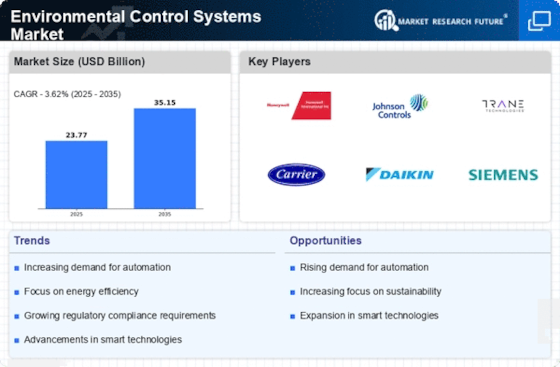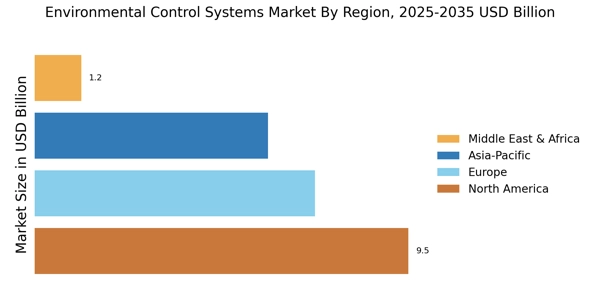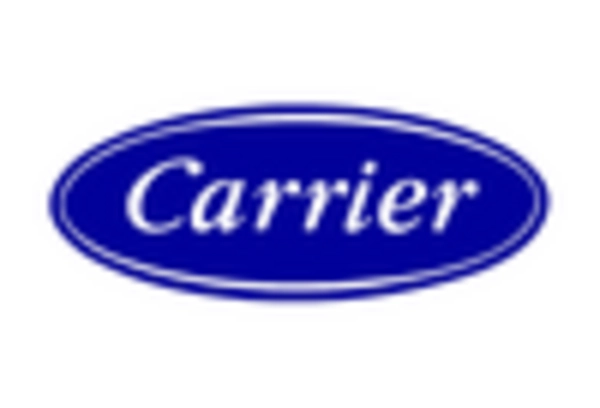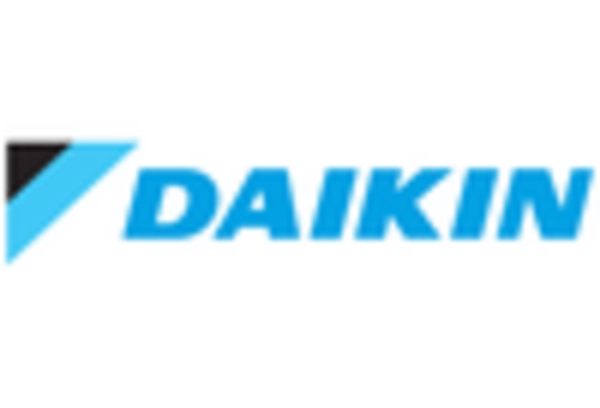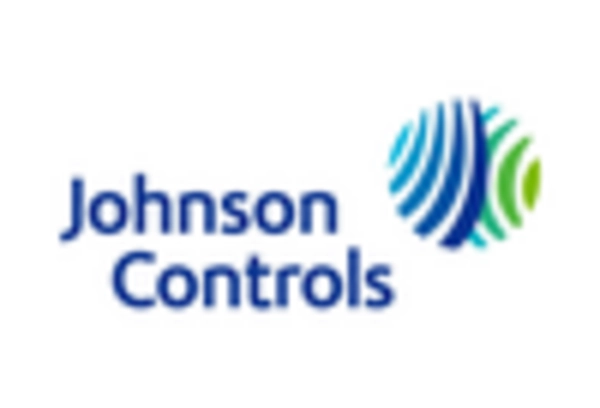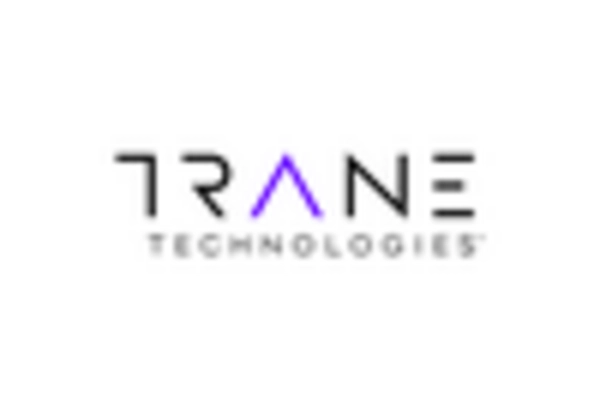Government Initiatives and Incentives
Government initiatives and incentives aimed at promoting energy efficiency and environmental sustainability are playing a crucial role in shaping the Environmental Control Systems Market. Various countries have implemented regulations and financial incentives to encourage the adoption of energy-efficient technologies. For instance, tax credits and rebates for energy-efficient HVAC systems are becoming increasingly common. These initiatives not only stimulate demand for advanced environmental control systems but also support manufacturers in their efforts to innovate and improve product offerings. As governments continue to prioritize sustainability, the Environmental Control Systems Market is likely to benefit from increased investments and a favorable regulatory environment, fostering further growth.
Increased Demand for Energy Efficiency
The growing emphasis on energy efficiency is a pivotal driver in the Environmental Control Systems Market. Organizations are increasingly seeking solutions that minimize energy consumption while maintaining optimal environmental conditions. According to recent data, energy-efficient systems can reduce energy costs by approximately 20-50%, depending on the application. This trend is further fueled by rising energy prices and the need for sustainable practices. As businesses and consumers alike prioritize energy savings, manufacturers are innovating to provide more efficient systems, thereby expanding their market share. The focus on energy efficiency not only addresses cost concerns but also aligns with broader environmental goals, making it a crucial factor in the Environmental Control Systems Market.
Rising Awareness of Indoor Air Quality
The increasing awareness of indoor air quality (IAQ) is emerging as a significant driver in the Environmental Control Systems Market. Poor IAQ has been linked to various health issues, prompting both consumers and businesses to seek solutions that ensure cleaner air. The demand for air purification systems and advanced ventilation solutions is on the rise, as organizations recognize the importance of maintaining healthy indoor environments. Market Research Future indicates that the IAQ solutions segment is expected to witness a growth rate of approximately 8% annually. This heightened focus on IAQ not only enhances occupant health and productivity but also drives innovation within the Environmental Control Systems Market, as manufacturers develop more effective solutions to meet these needs.
Advancements in Climate Control Technologies
Technological advancements in climate control systems are significantly influencing the Environmental Control Systems Market. Innovations such as variable refrigerant flow (VRF) systems and advanced building management systems (BMS) are enhancing the capabilities of environmental control solutions. These technologies allow for precise temperature and humidity control, which is essential for various applications, including commercial buildings and industrial facilities. The market for climate control technologies is expected to grow at a compound annual growth rate (CAGR) of around 7% over the next five years. As these technologies become more accessible and affordable, their adoption is likely to increase, further propelling the growth of the Environmental Control Systems Market.
Integration of IoT in Environmental Control Systems
The integration of Internet of Things (IoT) technology into the Environmental Control Systems Market is transforming how environments are monitored and managed. IoT devices enable real-time data collection and analysis, allowing for more efficient control of heating, ventilation, and air conditioning (HVAC) systems. This integration is projected to enhance energy efficiency by up to 30%, as systems can adjust based on occupancy and environmental conditions. Furthermore, the ability to remotely monitor and control systems contributes to reduced operational costs and improved user comfort. As more organizations adopt IoT solutions, the demand for advanced environmental control systems is likely to increase, driving growth in the Environmental Control Systems Market.


